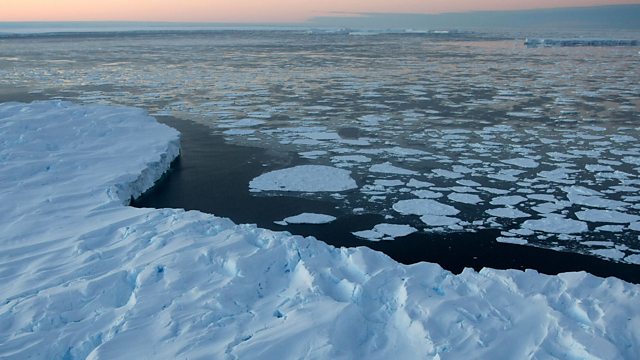Antarctic Seabed Life Captures Carbon as Ice Melts
Antarctic seabed life captures carbon as ice melts, Bees develop shorter tongues as alpine flowers decline, Hummingbird tongues, LIGO, Bluetongue virus.
As climate change warms our planet some areas of the West Antarctic ice sheet are melting, causing rising sea levels and reducing the amount of heat reflected by the bright white ice sheets. In an unexpected twist a new study has found that as the ice retreats, tiny organisms on the ocean floor are thriving, and their increased growth could play a significant role in capturing and locking away carbon. Given the vast number of these miniature marine creatures their flourishing activity could play a major role in counteracting climate change.
Bumblebee Tongue Evolution
Bumblebees across the globe are having to adjust swiftly to changing climates and shifting plant distributions. As summers warm in alpine regions some flowers are moving uphill in response to rising temperatures. Insects often follow their migrating food source, but in the Rocky Mountains two species of bumblebee have shown remarkable adaptability by rapidly evolving shorter tongues to suit the changing range of local flowers.
Hummingbird Tongues
Hummingbirds, like bees feed on nectar from flowers and like bees they use long tongues to slurp up the sweet juices. Their tongues are skinny and translucent, with no muscles, but grooves down each side and forked and fringed at the end. It used to be thought that the hummingbird tongues worked by capillary action, with the nectar flowing up the open side grooves. But new very high speed video footage has shown that the tongues are more like a micro-pump. The hummingbird, first squeezes it’s tongue with its beak, so that when it touches the nectar, it springs open, sucking up the delicious liquid more like a syringe or a pump - and this happens at a whopping 23 slurps a second!
LIGO
Visions of the universe exert an eerie silence. But as Aleem Maqbool reveals in A New Ear on the Universe, on the Βι¶ΉΤΌΕΔ World Service, all this is set to change. Physicists are racing to develop a cosmic hearing aid which will bring us the Universe’s equivalent of sound - gravitational waves.
Bluetongue Virus
Bluetongue virus, which infects a range of animals including cattle, sheep and deer, has recently been reported in Central France and experts are wondering whether or not this might mark the start of a wider outbreak.
(Photo: Giant tabular icebergs surrounded by ice floe drift. Credit: Torsten Blackwood/AFP/Getty Images)
Last on
More episodes
Broadcasts
- Thu 24 Sep 2015 18:32GMTΒι¶ΉΤΌΕΔ World Service except East and Southern Africa & West and Central Africa
- Thu 24 Sep 2015 19:32GMTΒι¶ΉΤΌΕΔ World Service East and Southern Africa
- Thu 24 Sep 2015 23:32GMTΒι¶ΉΤΌΕΔ World Service except West and Central Africa
- Fri 25 Sep 2015 02:32GMTΒι¶ΉΤΌΕΔ World Service Europe and the Middle East & Australasia only
- Fri 25 Sep 2015 04:32GMTΒι¶ΉΤΌΕΔ World Service South Asia, Online, Americas and the Caribbean & UK DAB/Freeview only
- Fri 25 Sep 2015 05:32GMTΒι¶ΉΤΌΕΔ World Service East Asia
- Fri 25 Sep 2015 06:32GMTΒι¶ΉΤΌΕΔ World Service Europe and the Middle East
- Fri 25 Sep 2015 12:32GMTΒι¶ΉΤΌΕΔ World Service except Americas and the Caribbean, Australasia, East and Southern Africa & West and Central Africa
- Fri 25 Sep 2015 13:32GMTΒι¶ΉΤΌΕΔ World Service Australasia
Podcast
-
![]()
Science In Action
The Βι¶ΉΤΌΕΔ brings you all the week's science news.


